 I've seen approximately 23 of Woody Allen's films, showing only the faintest disinterest in two of them (those being Small Time Crooks and his most recent outing, Cassandra's Dream). I've only witnessed about half of his output, and while I'm led to believe there are a few more disappointments awaiting me, I have to say the man's work is remarkably consistent, almost shockingly so. Considering just how prolific he is, Woody Allen's never really made anything less than "above average" caliber, and considering the artistic risks he so often takes, it's a wonder he isn't even more revered as a filmmaker. Notice in trailers and artwork for his latest, Vicky Cristina Barcelona, that his name barely merits a mention or any kind of prominent display. It's absurd treatment for one of the seminal voices in American cinema.
I've seen approximately 23 of Woody Allen's films, showing only the faintest disinterest in two of them (those being Small Time Crooks and his most recent outing, Cassandra's Dream). I've only witnessed about half of his output, and while I'm led to believe there are a few more disappointments awaiting me, I have to say the man's work is remarkably consistent, almost shockingly so. Considering just how prolific he is, Woody Allen's never really made anything less than "above average" caliber, and considering the artistic risks he so often takes, it's a wonder he isn't even more revered as a filmmaker. Notice in trailers and artwork for his latest, Vicky Cristina Barcelona, that his name barely merits a mention or any kind of prominent display. It's absurd treatment for one of the seminal voices in American cinema.In honor of his impending new release, and in hopes of giving him his due respect, here is my list of the Top 5 Woody Allen Films. I recommend a marathon. Your very own Woodstock 2008. You'll laugh, you'll cry, you'll forget Small Time Crooks altogether.
1) Hannah and Her Sisters (1986)
While some prefer Allen's comedies and some prefer his dramas, Hannah and Her Sisters serves as an absolute mastery and marriage of the two. The interweaving story of three sisters and their crossed love lives is perfect fodder for Allen's tackling of social and sexual mores. The large ensemble of characters are given remarkably dense arcs and still the film never halts the laughter. The narrative is remarkably flawless as he weaves through his favored themes of adultery and philosophical pondering, all with a refreshing mix of both the cynical and hopeful. Special mention must be given to an even more likable than usual Dianne Wiest and Woody Allen himself at his neurotic best.
2) Interiors (1978)
 "You'll live to be a hundred if you give up all the things that make you want to."
"You'll live to be a hundred if you give up all the things that make you want to."
 "You'll live to be a hundred if you give up all the things that make you want to."
"You'll live to be a hundred if you give up all the things that make you want to."Initially perceived as one of Allen's failures, it has since been reassessed by his fans as the masterful drama it is. Allen takes obvious influence from Ingmar Bergman and uses Gordon Willis' cinematography to stunning effect. It's perhaps the heaviest of Allen's films and also one of his best constructed. The story follows a distraught family stifled by their controlling, mentally-ill mother, who's completely unable to accept her surroundings and the recent separation from her husband. We get the chance to see Diane Keaton in an atypically dark role here and yet the showcase is the sublime Geraldine Page as the mother. Bergman would be especially proud of the bits where Page learns of her impending divorce during a visit to the cathedral. The emotions barely register on her face and then she all but shatters before our eyes. She swipes away the nearby candles and flees to the safety of her confined interiors. And I'll never forget the way she so casually tapes up her windows and turns on the gas. It's one of Allen's most beautiful, bleak and affecting works.
3) Another Woman (1988)

"For here there is no place that does not see you. You must change your life."
Like Interiors, Allen again acknowledges his influences. With Another Woman there's a bit of Bergman (especially due to Bergman cinematographer Sven Nykvist) and a bit of Brecht as we descend into the mind of one of Allen's most repressed characters. We're used to seeing Gena Rowlands play women on the edge in John Cassevete's films, but here she's playing someone who appears to have it all together. The drama begins when Marion Post rents an apartment to better focus on her writing, but she's quickly distracted upon overhearing a woman's voice drifting through the air ducts. The mysterious woman (played by Mia Farrow) is speaking to her analyst about living a life she hardly knows. Marion is typically the type to shrug off this kind of introspection and fruitless discussions of the past, but the woman's painful longings strike an unexpected chord. They set the course for a life-changing journey in which Marion struggles with the choices of her past and where her life is headed. The themes are extremely resonant, and while the story might seem dark and depressing on the surface, it ultimately becomes one Allen's most rich and rewarding works, with Rowlands a consummate wonder as always.
4) Husbands and Wives (1992)

"It's the Second Law of Thermodynamics: sooner or later everything turns to shit. That's my phrasing, not the Encyclopedia Britannica."
Mentioned mostly in parallels to Woody Allen's real life marital strife, Husbands and Wives is a key film in his career for some unexpected reasons. Perhaps only a person going through such personal turmoil could write such incisive words and find such brutal honesty in these characters' relationships. The innovative mock documentary style lends itself well to the probing dissection of marriage, as one couple's divorce causes a ripple effect amongst their friends. There's a heavy dose of Allen's humor but with a biting edge this time, delivered by an ensemble at the top of their game. Special mentions must go to Judy Davis as the embittered ex, Sally, who's responsible for one of the most awkward and hilarious bad dates in movie history, and Juliette Lewis as a smart college student who tempts and teaches Allen's frustrated husband.
5) The Purple Rose of Cairo (1985)
 "I want what happened in the movie last week to happen this week. Otherwise what's life all about anyway?"
"I want what happened in the movie last week to happen this week. Otherwise what's life all about anyway?"It's a film that all film lovers should see, and I can't imagine they'll come away untouched by its sweet sentiments. It's so easy to connect to this whimsical tale of a woman longing to escape her drab Depression-era life and her distant, brutish husband. Her escape comes by venturing into the movies, made physically possible when a beloved character literally steps off the screen just to meet her. It's the makings for a heartwarming romance and a brilliant meta exercise, in which the dilemma of that scenario happening in the real world is used to great comic effect. Allen finds a rare and deft balance, giving it real depth and still managing to make it feel light and breezy. It also contains one of Allen's most wonderfully poignant and melancholy endings, which brings the viewer back to reality and puts an end to their own cinematic escape.
For perspective, and just for kicks, here's my next five favorites... making this actually a Top Ten List... but who's really counting?... Besides me... obviously...
6) Manhattan Murder Mystery (1993)
 "You gotta go back to your shrink. You know how General Motors will recall defective cars? Well, you gotta go in for a tune-up."
"You gotta go back to your shrink. You know how General Motors will recall defective cars? Well, you gotta go in for a tune-up."
 "You gotta go back to your shrink. You know how General Motors will recall defective cars? Well, you gotta go in for a tune-up."
"You gotta go back to your shrink. You know how General Motors will recall defective cars? Well, you gotta go in for a tune-up."
7) (tie) Annie Hall (1977)
9) Match Point (2005)
 "It would be fitting if I were apprehended... and punished. At least there would be some small sign of justice - some small measure of hope for the possibility of meaning. "
"It would be fitting if I were apprehended... and punished. At least there would be some small sign of justice - some small measure of hope for the possibility of meaning. "
10) Zelig (1983)






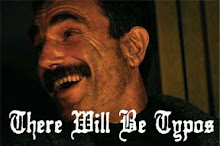
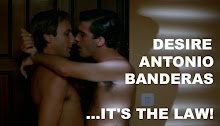
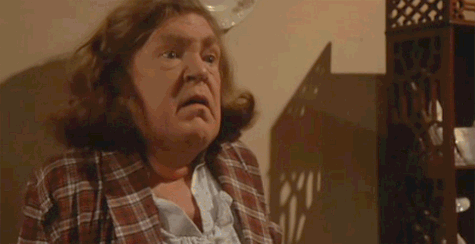
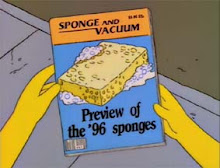
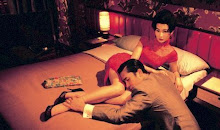
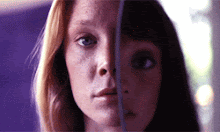


No comments:
Post a Comment